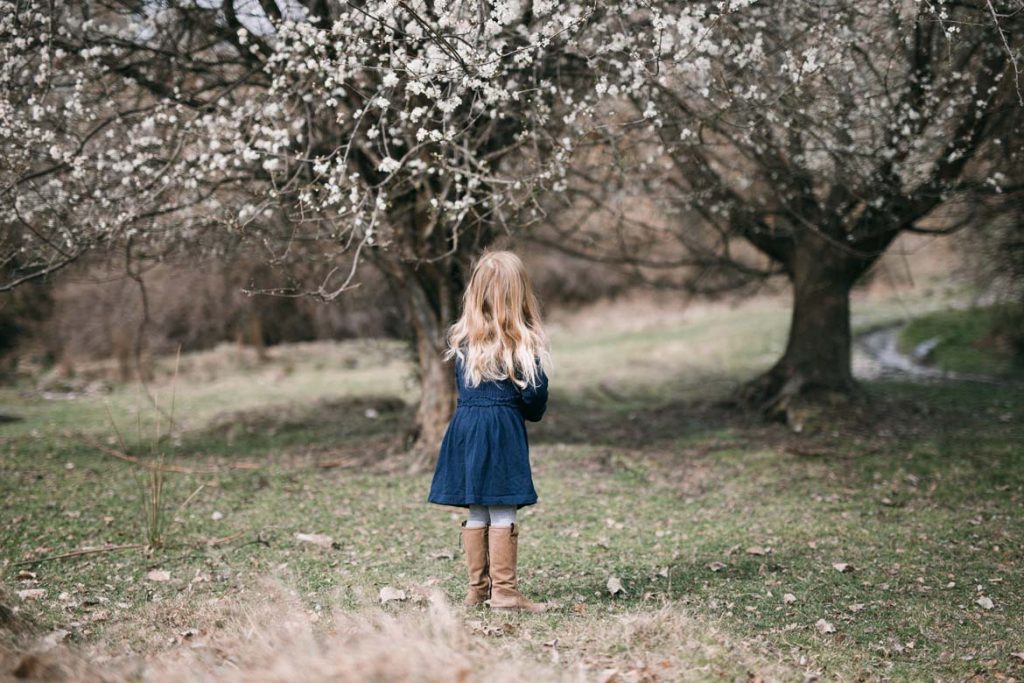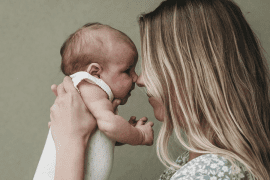By Georgie Budini (BPsy Hons)
I have witnessed a few interactions between parents and their children lately that have been similar in content and have left an uncomfortable feeling in the pit of my stomach. This feeling has prompted open, interesting and confronting conversations with my loved ones and some serious Googling over the last few days. Before I begin my rant, let me list for you the collection of these catalysts that have inspired me to use these very rare and precious moments while my three year old is at preschool and my one year old is snoozing to sit down and form my troubled thoughts and feelings into some sort of order:
- A girl who looks about eight is lifting up her top and knotting it to expose her belly, like I remember doing when I was a child. Her mother scolds her, tells her to pull her top down because “no one needs to see that.”
- A group of young girls are in the park playing some sex drenched pop song from one of their mum’s iphones and choreographing a dance together that mimics the sexually provocative moves of the plastic pop stars in the videos. The dads awkwardly avoid eye contact while the mum’s reprimand the girls for dancing in a manner that is “too grown up, we’re out in public.”
- Prepubescent brother and sister laze back on their chairs at a café, both stretching their legs out in a childlike display of full bellied satisfaction after a big meal. Dad sharply tells his daughter to “be ladylike and close her legs.”
I have identified the cause of this uncomfortable feeling in my tum tum. These reactions from well-meaning parents are symptomatic of a sexism so entrenched in our culture that it often slips by unnoticed and undiagnosed. The attitudes and values these parents are communicating to their children only serve to perpetuate the problem.
This is indeed a daunting time to be a parent. Our society’s relationships with sexuality, with nudity, with the female form are, frankly, conflicted and sick. In this digital age, our children have access to, and are exposed to, pornographic material often well before their first real life sexual experience with another person. The news tells us that sexting is the norm in high school peer groups and that revenge porn is on the rise. Sex still sells in the music industry (though that is no recent revelation). Our children, the future men and women of the planet, are being conditioned by so many forces that are out of our control.
I have no doubt that the parents in the examples above love their children, and are trying to help or protect them using the tools they have available to them. I can understand their fear based behaviour.
But let’s really break down the messages we are sending to our daughters and our sons by communicating this way.
- In the first example, mother has communicated to daughter that her body is shameful. “No one needs to see that,” conveys to this eight year old girl that her body is confronting to society and it needs to be covered so as not to attract unwanted attention. Daughter might understandably deduce from this that her body has the power to make mum feel uncomfortable and is a tool to provoke a reaction. This well-meaning mother has in fact sexualised her daughter’s body, clearly the exact outcome that she was fearful of. To an impressionable girl already overwhelmed by media messages that her worth is determined by her appearance, this could also be interpreted as confirmation that her body is not worthy (not skinny enough, not tanned enough, not pretty enough).
- The girls in the park were experimenting. Their world is saturated with increasingly explicit images, lyrics and videos that expose them to violence, drug abuse, sex and sexual stereotypes. This omnipotent media culture promotes unhealthy sexual power dynamics between men and women, emphasises the importance of appearance and weight and perpetuates a whole host of other damaging societal patterns. I can empathise with the awkwardness of the dads and the embarrassed “stop that right now” of the mums. But the message received by the girls is: mum and dad are frightened of our sexuality. They don’t want to talk about it. They don’t want to see it. They don’t want anyone else to see it.
- The dad in the café was fearful too: fearful of someone seeing his daughter’s undies. He wanted her to be aware of her body and, like mum in our first example, keep herself covered up. But, to be totally honest, I had a much clearer view of his son’s testicles up the leg off his shorts than I did of any incriminating part of his embarrassed daughter, who blushed, sat up, and quickly rearranged herself while her brother lay back comfortably bearing his money bags for all to see. The message both daughter and son received here is glaringly obvious: girl has a body part that makes her vulnerable and is not fit for public spaces while boy can relax, how he chooses, without comment. Both children had displayed exactly the same behaviour, and the girl was reprimanded simply because of her gender.
Sexuality exists. We are sexual beings. Let’s be real – there’s a little freak in all of us. It is counterproductive to pretend sexuality does not exist, or to teach our children to be ashamed of their sexuality. An unhealthy or distorted view of sex paves the way to unhealthy sexual relationships in the future. Creating stigma and shame around your daughter’s body lays the foundation for low self-esteem and body image issues and in turn increases her likelihood of developing mental health problems such as eating disorders, anxiety and depression. The values underlying this social narrative, when eroded down to their bare bones, are also suspiciously reminiscent of victim blaming. It was not long ago at all that a Canadian police officer gained infamy from his comments at a campus rape prevention talk that “women should avoid dressing like sluts in order not to be victimized.” Let us remember, mothers and fathers, that the fault, the blame and the responsibility here lies with the perpetrators of such crimes. Not the clothing of the victims. If I felt particularly brave, if it were socially acceptable, if I thought that it would help, I would ask these parents if they see something wrong with their daughter’s bodies. Do they see them as sexual objects? Are they fearful that other people will? And, if an adult did prey on their child, is their child at fault or the adult?
Obviously the three situations I have listed here are not the first or only examples of damaging, sexist communication amongst peers and family members. These values are so entrenched that we encounter them in our homes, our prechools, our schools and our social circles. The fault does not lie within the individual – these reflexive comments are the result of unconscious, transgenerational conditioning. Our parents spoke to us this way and their grandparents to them and so on and so forth. When parents are in social situations with their children, this sort of parenting may also stem from concern about how other adults will judge them or their children. These are challenging patterns to unlearn. But the cycle must stop somewhere.

The all important question, then, is: How DO we keep our children safe? Unfortunately, there are some things we simply cannot protect them from. But we can equip them with the tools to thrive (and to navigate this rapidly changing world) in the following ways
Build self esteem
Self-esteem and self-worth are now unanimously accepted by psychologists as essential tools for coping effectively with life’s challenges. We can build our children’s self-worth in many ways, including caring for ourselves and role modelling self-love; listening to them and mindfully communicating with them; helping them express their feelings; creating a safe and loving home environment; showing them that failing or not always succeeding the first time) is part of life; giving them our unconditional love; and spending genuine quality time with them. Individuals with high self esteem and self worth are more likely to engage in positive and respectful sexual relationships
Teach them to love and respect their bodies (and other people’s)
By teaching our children to celebrate, love and respect their bodies, we empower them to make their own sexual decisions rather than follow the crowd or succumb to peer pressure. We can do this by being comfortable with nudity (theirs and your own) in the home, by celebrating self-expression through movement and dance, and by using narrative that celebrates their uniqueness and build positive self image (“I love dancing with you!” or “your freckles are gorgeous”). It is important not to over emphasise the value of physical appearance, but this is all part of self-confidence. We can also teach them to respect and value other people’s bodies from a very young age: I’m working on this with my three year old at the moment who loves to play with his baby brother’s hands and limbs: “Ollie needs some personal space,” or “Ollie gets to decide what he does with his body just like you get to decide what to do with yours.”
Talk about sex
An open, natural and ongoing dialogue about sex is also hugely important. We can prepare our sons and daughters by educating them about consent, and about making informed decisions about sex that both partners are comfortable with. Rather than saving it up for some long winded, awkward, old fashioned “birds and the bees” talk, sex education is more effective and natural as an ongoing process. Short, frequent conversations are easier on both parties. If you see an article or hear something on the news that is age appropriate – bring it up that way. “Have you heard about this issue?” or “what would you do in this situation?” It’s important to listen non-judgementally and with an open mind. Our kids are digital natives and are growing up in a totally different sexual climate from our own. They may have pre-conceptions that are confronting to us, and rather than reacting with anger or reprimanding them, it’s more helpful to tell them calmly why you find what they said confronting.
Teach them to be critical of media
As parents, we must educate ourselves about social media, pornography and other media influences that this generation have unlimited access to. If we teach our children to objectively and critically interpret the media, they will be less easily influenced by it (particularly around sex, sexuality, sexism, drugs and violence). If you hear a song together that promotes unhealthy values and ideas, rather than turning it off or reprimanding them for listening, ask them what they think about the lyrics. This will open up healthy and educational conversations.
Teach them to communicate their emotions
This is up there with the most important thing we can teach our children. Teaching them to manage their feelings, and in turn their behaviour will contribute to their future interactions, relationships and general quality of life. We can do this by staying calm when they are angry, frustrated or acting out; responding with compassion; showing them that we accept their feelings even if we need to set boundaries around their behaviour; and teaching them to express their emotions using their language. Research shows that when parents regulate their own emotions and accept the child’s emotions, their children learn to manage and communicate their feelings. If our children value their instincts and emotions and are proficient at expressing them, they are much more likely to talk to us, a friend or a teacher if someone is treating them in a way that is disrespectful or makes them feel uncomfortable.
There are many things in this world that are wrong. The fact that we even have to discuss things like revenge porn or rape culture with our children can make us angry with the world. But anger isn’t really constructive. We can choose to be part of the solution, rather than part of the problem. When we speak, our children are listening. They are assimilating our view of them into their own view of themselves and their world. Let us build them up, not tear them down.
P.S. Reading over this brings to mind a memory that makes me smile. My 13 year old self dancing around to some awful early noughties pop song: “Mum, do I look sexy?”
She answered, “You look like you’re having fun, darling, and that’s beautiful.”
What makes me smile is the mild annoyance I can still taste at not being told I was sexy. But in hindsight, what a perfect answer. Thanks, Mum.
Georgie Budini is a psychology graduate who has paused her professional career to spend those beautiful chaotic early years playing with her two boys, Max and Ollie (and number three who is growing away in her belly).











